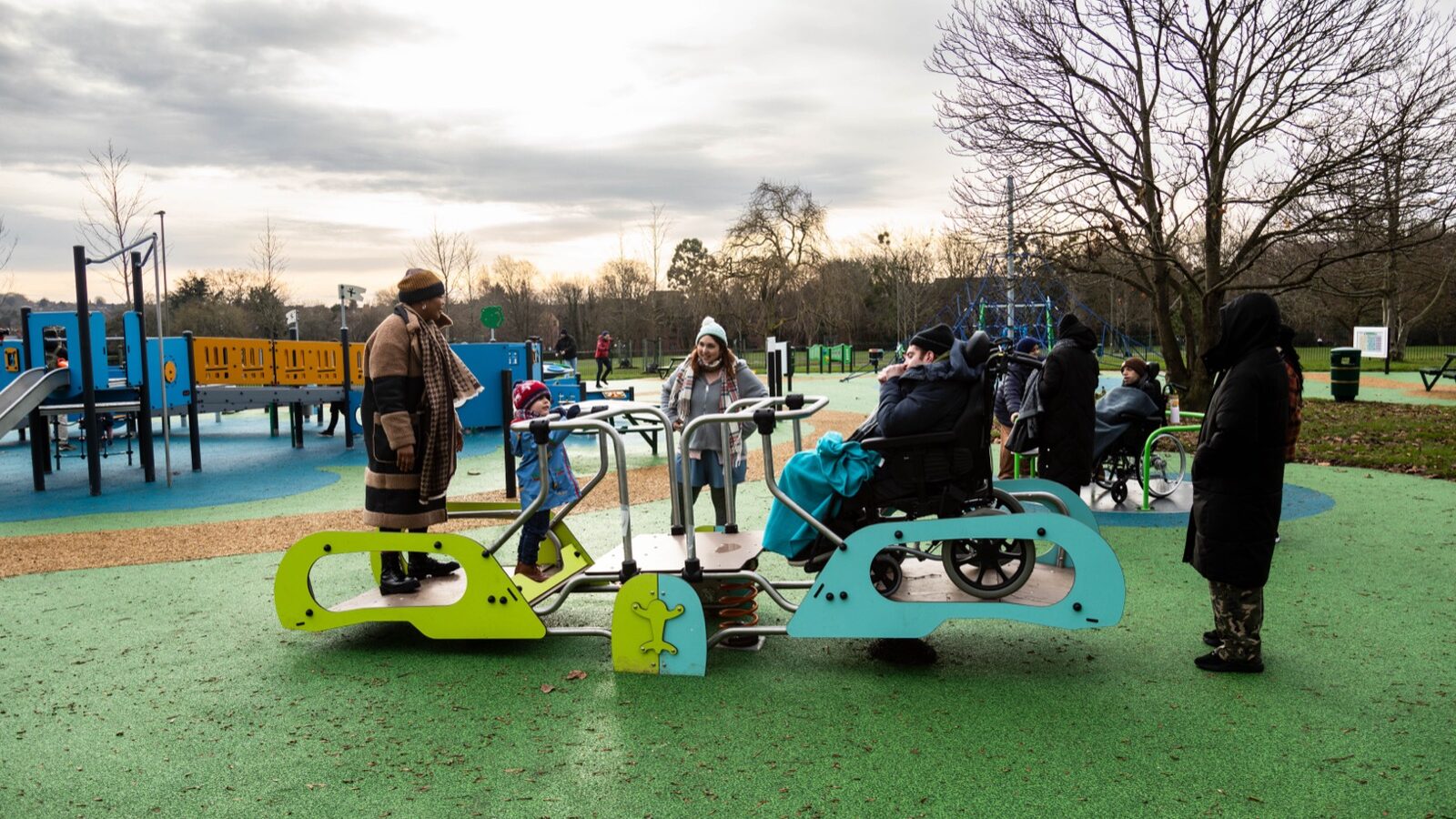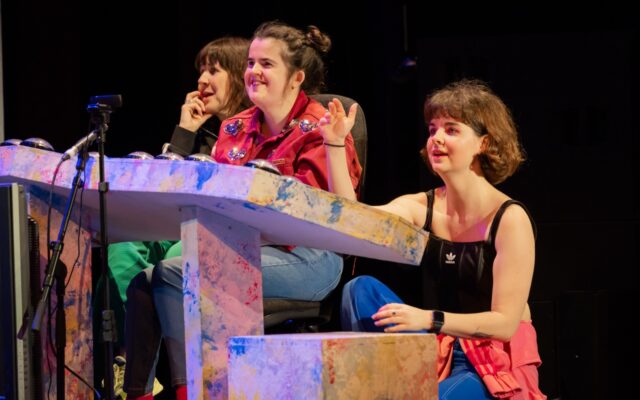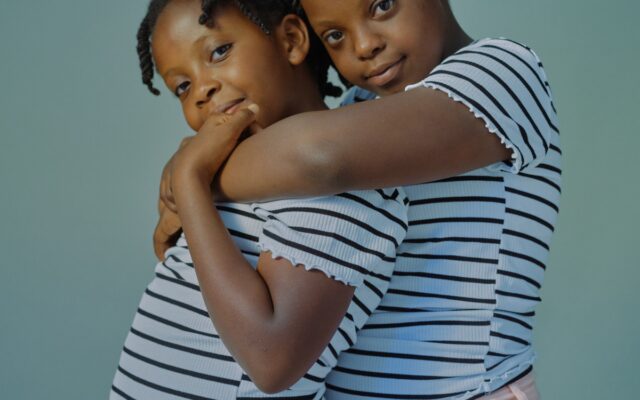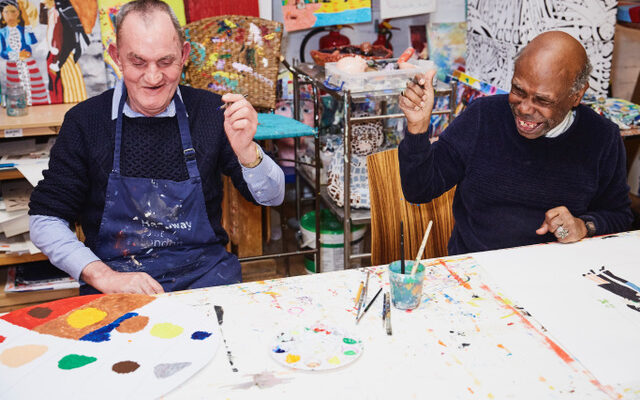Policy and politics on national event agenda
More than 500 people attended Learning Disability England’s (LDE) annual conference, which aimed to enable individuals with learning disabilities to learn more about policy and politics.
The group’s annual spring conference was formed of three events – in London, Leeds and online – and was called Politics and Policy: Influencing and Leading Change.
The aim was to empower people to think about elections and their right to vote.
Attendees – self-advocates, family carers, supporters, organisational leaders, researchers and policy experts – shared examples of influencing and policy for LDE’s Good Lives project.
This movement for change, launched in 2022, involves sharing what it will take for everyone with learning disabilities to live a good life.
Conference speaker and self-advocate Aisha Edwards from Lewisham Speaking Up said: “The conferences are good because people can get their voices across.”
Film festival reaches more cities in the UK
This year’s Oska Bright Film Festival saw more than 100 films made by or featuring autistic people or people with learning disabilities being screened.
The biennial festival took place over a week in March at various venues in Brighton. This year, screenings also took place in cities including Birmingham, London, Manchester and Oxford.
People with disabilities are under-represented in the film industry, so the festival raises awareness about inclusive filmmaking as well as showcasing creative talent.
The Oska Bright Film Festival was founded in 2004 by learning-disabled filmmakers frustrated at having nowhere to show their work. It screens films from the UK and abroad.
Head programmer Matthew Hellett said the event “gives the mainstream film industry an insight into the world of learning disabilities that they can’t see”.
Legal adviser runs final fundraiser
Social care legal agency CASCAIDr, a long-time supporter of this magazine and a lifeline for many people and families, launched its final fundraiser in February.
The adviser is to close but has been crowdfunding a legacy campaign: obtaining barristers’ views on Care Act issues. The fundraiser is on the Crowdjustice website.
Everyone can come out to play in adapted ground
A new inclusive playground in London (photographed above) encourages families, children and adults of all abilities to spend leisure time together.
The Fair Play playground in Barnet, north London (see image), is a space for disabled and non-disabled people of all ages.
It features communication boards, wheelchair-accessible picnic areas, inclusive play equipment that spins, rocks and swings, along with sensory panels for touch, movement and sound.
Research from Scope has shown that 49% of parents with disabled children say there are accessibility issues at their local playground.
Fair Play was founded by mothers Nathalie Esfandi and Deborah Gundle, driven by their children’s experiences of being excluded from play. They raised funds and worked alongside Barnet Council, which contributed £100,000 towards the project.
Gundle said: “I know how difficult it is for families like ours to be able to play together. Seeing the equipment being used by disabled and non-disabled children side by side is incredibly rewarding.”
News briefs
Patron role for Phillips
Actor Sally Phillips and her son Olly have become patrons of the Down’s Syndrome Association. Olly, who has
the condition, said he was “a bit nervous” but that it was an honour “and we will do our best to bring about good change”.
Stuck in hospital: why?
The difficulties experienced by people with learning disabilities and/or autistic people when trying to leave long-stay hospitals have been set out in a report. The Why are We Stuck in Hospital? report, by the University of Birmingham and rights-based organisation Changing Our Lives and funded by the National Institute for Health and Care Research, describes barriers such as complex funding and a failure to plan support after hospital around the individual.
Baby book for new parents
A new picture book from charity Beyond Words aims to open conversations with adults with learning disabilities about becoming parents. Loving Babies is the second in its series of word-free picture books exploring pregnancy and parenthood. Around 7% of people with learning disabilities in the UK will become parents but have few resources to help them.
Brothers tell their story
Manni and Reuben Coe, whose book brother.do.you.love.me describes how Manni supported Reuben to move from a life of isolation and mental ill health in a care home for adults with learning disabilities, will discuss their story at London’s Southbank Centre. The event is on 14 April in the Purcell Room of Queen Elizabeth Hall.





